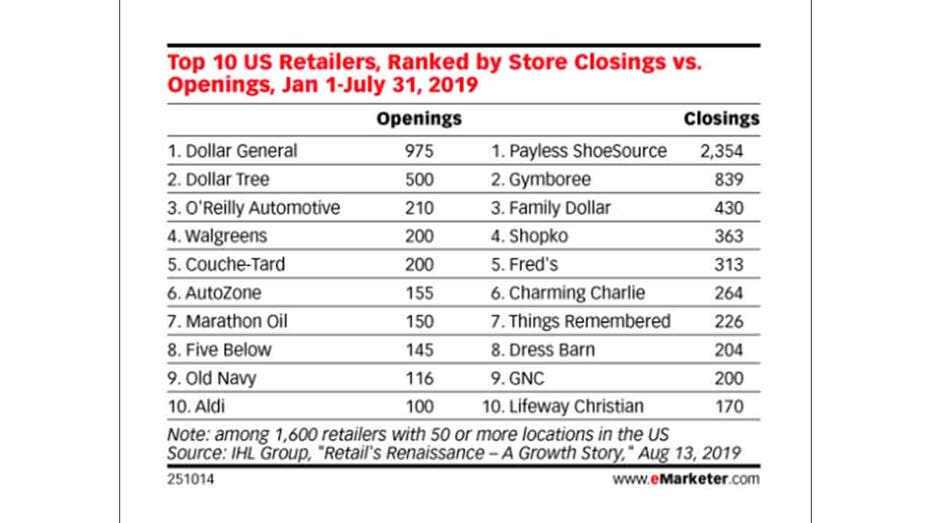'Brandless' brands will be big moneymakers in 2020: Report
Private-label, 'brandless' brands will be financial windfalls in 2020, according to a recent retail report
With the retail industry trying to adapt to the changing dynamics of consumer brand loyalty, one type of brand stands to cash in as more shoppers are opting for a "brandless" approach in the new year.
According to eMarketer’s most recent report, “The Future of Retail 2020: 10 Trends that Will Shape the Year Ahead,” consumers are moving away from retail shopping by brand marketing in favor of more value-oriented, direct-to-consumer offerings.
The online outlet Brandless is offering consumers just that and is poised for a financial windfall this year as shoppers continue to reshape the retail landscape.
“In one sense, the growing popularity of D2C (direct-to-consumer) illustrates the value of differentiation, product innovation and addressing unmet customer needs,” said Andrew Lipsman, eMarketer principal analyst and author of the report.
“At the same time, today’s consumers are looking for value and aren’t necessarily attached to particular brands — or possess fondness for the retailer over the brands on the store shelves."
An IHL report from August 2019 showed that the kind of retail companies opening the greatest amount of new stores were moving toward this kind of brandless approach, with discount merchants and grocers such as dollar stores and Aldi supermarkets thriving mostly off of private-label products despite a lack of brand-oriented marketing.

As an online retailer, Brandless specializes in everything from groceries to wellness and home goods, all with a minimalist approach to meeting the modern consumers’ needs in terms of brands and marketing. Lipsman’s report shows that retail shoppers have started to prioritize things like value over marketing and private-label products over brand loyalty, with direct-to-consumer companies like Brandless filling this growing demand.
BRANDLESS COMPANY CHARGES ONLY $3 FOR ALL ORGANIC FOOD PRODUCTS
Shoppers are moving away from the habits of generations past, which valued brand loyalty and responded more to marketing, according to Lipsman’s report.
“Consumer mindset is shifting, and people are not anti-brand," said Aaron Magness, CMO of Brandless. "They’re leaning more toward anti-the-way-it-used-to-be.”
And Lipsman noted that private-label hardly equates to lesser quality, with either comparable or even better quality than more established brands.
“Private labels used to signify cheaper, lower-quality ingredients,” Lipsman said. “Today, brandless brands are flipping that notion on its head and providing what many perceive as better quality while maintaining good value.”
BRANDLESS POP-UP LOOKS TO TRANSFORM FOOD INDUSTRY
In response to this growing popularity of private-label offerings amongst consumers, retail giant Target introduced their Good & Gather food and drink brand in August 2019, part of the company’s overhauled private-label plan.
“The idea behind the brand is simple: great food made for real life,” Target CEO Brian Cornell said during the company’s third-quarter 2019 earnings call. “Good & Gather incorporates simple, high-quality ingredients without any artificial flavors, synthetic colors, artificial sweeteners or high-fructose corn syrup.”
CLICK HERE TO READ MORE ON FOX BUSINESS
Thus far, Good & Gather has been a hit with customers, with Lipsman’s report attributing it to Target’s strong third-quarter performance.
“For the retailer, it’s a very opportunistic move — good from a financial standpoint to be able to drive volume through an owned brand,” said Jason Young, chief marketing and media officer at retail marketing tech company Quotient Technology. “Certain commoditized categories across segments with high price sensitivity, that’s where the vulnerability is going to exist.”
GET FOX BUSINESS ON THE GO BY CLICKING HERE




















